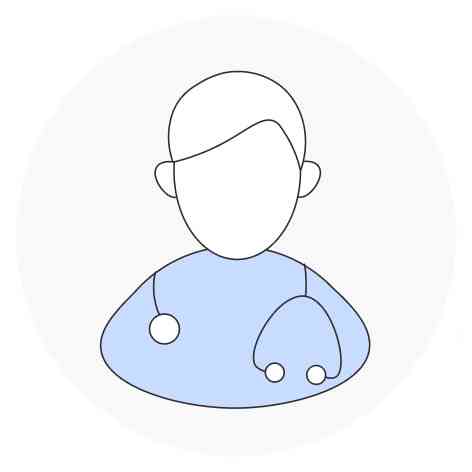Discover advanced Thyroid Disorders surgery solutions to relieve pain and restore comfort. Our expert team specializes in minimally invasive procedures, ensuring effective treatment for corns and related foot conditions to improve your quality of life.
Book Your Free Second Opinion
30k+
Surgeries Done
50k+
Departments Treated
150k+
Conditions Treated
3k+
Specialist Doctors
200+
Cities
Thyroid Disorders Introduction
Thyroid disorders are conditions that affect the thyroid gland, a small butterfly-shaped gland located in the front of the neck. This gland plays a crucial role in regulating various bodily functions by producing hormones that help control metabolism, energy levels, and overall growth and development. When this delicate balance is disrupted, it can lead to a range of health issues. Here are key points to consider when understanding thyroid disorders: - Underlying Condition: Thyroid disorders can be caused by an overactive thyroid (hyperthyroidism) or an underactive thyroid (hypothyroidism), as well as other conditions like thyroid nodules or thyroid cancer. Understanding the specific underlying condition is essential in determining the appropriate treatment approach. - Risks of Over- and Under-Treatment: Balancing the treatment of thyroid disorders is crucial to avoid complications. Over-treatment can lead to hyperthyroid symptoms like rapid heartbeat and weight loss, while under-treatment can result in symptoms such as fatigue, weight gain, and depression. It is important to work closely with healthcare providers to find the right balance. - Medicines: Treatment for thyroid disorders often involves medications that help regulate hormone levels. These medications may need to be taken consistently and adjustments may be necessary based on regular monitoring and feedback from healthcare providers. - Monitoring: Regular monitoring of thyroid function is essential to assess the effectiveness of treatment and make any necessary adjustments. This may involve blood tests to measure hormone levels and ensure they are within the target range. - Impact on Pregnancy and Fertility: Thyroid disorders can have implications for pregnancy and fertility. It is important for individuals with thyroid disorders who are pregnant or planning to become pregnant to discuss their condition with their healthcare provider to ensure proper management and monitoring to support a healthy pregnancy. Understanding these key aspects of thyroid disorders is essential for individuals diagnosed with these conditions to actively participate in their care and make informed decisions in partnership with their healthcare providers.
What You Get From MediBuddy
Get an Expert Second Opinion
Find Top Cashless Hospitals
Find Surgery Cost Estimate
Verify Insurance Coverage
Why MediBuddy For Health Care

Enhanced Quality of Care
Constant support, a network of premium hospitals and top-tier surgeons.

End-to-End Management
Your only focus should be to go and get your procedure done. Leave the rest to us.

Continuous Guidance
Any problem you may face will be resolved with one phone call.

Easy financing support
We bring you the best deals, EMI options without compromising on quality
Types Of Thyroid Disorders
Types of Thyroid Disorders include: Hyperthyroidism (Overactive Thyroid): The thyroid produces excessive hormones, leading to symptoms like weight loss, rapid heartbeat, anxiety, and hand tremors. Hypothyroidism (Underactive Thyroid): The thyroid doesn't produce enough hormones, resulting in fatigue, weight gain, cold intolerance, and constipation. Thyroid Nodules: Lumps that develop in the thyroid gland. These can be benign (noncancerous) or malignant (cancerous). Most nodules are benign, but a fine-needle aspiration biopsy can help determine the nature of the nodule. Thyroiditis: Inflammation of the thyroid gland. There are various types of thyroiditis, including: Hashimoto's Thyroiditis: An autoimmune disorder, the most common cause of hypothyroidism. Graves' Disease: An autoimmune disorder that causes hyperthyroidism. Postpartum Thyroiditis: A temporary inflammation that can occur after childbirth. Thyroid Cancer: Uncontrolled growth of cells in the thyroid. This is relatively uncommon, but prompt diagnosis and treatment are crucial.
Common Thyroid Disorders
Common thyroid disorders include: Hyperthyroidism (Overactive Thyroid): The thyroid produces too much hormone, causing an overactive metabolism and symptoms like weight loss, rapid heartbeat, and anxiety. Hypothyroidism (Underactive Thyroid): The thyroid doesn't produce enough hormone, leading to a sluggish metabolism and symptoms like fatigue, weight gain, and feeling cold. Focus on Prevalence: You can mention that both hyperthyroidism and hypothyroidism affect millions of people globally, highlighting their common occurrence. Simple Goiter: Briefly mention goiter, an enlargement of the thyroid gland. It can be caused by iodine deficiency (not as common anymore in developed countries) or other factors. Not all goiters cause problems, but they may be monitored or require treatment in some cases.
Complications Of Thyroid Disorders
Thyroid disorders, whether it be hypothyroidism or hyperthyroidism, can lead to various complications that require attention and management. Understanding these potential complications is crucial for individuals with thyroid disorders and their healthcare providers to ensure timely intervention and optimal care. - Complications of Hypothyroidism: - Cardiovascular issues: Hypothyroidism can contribute to an increased risk of heart disease, high cholesterol, and high blood pressure. - Mental health concerns: Depression, memory issues, and cognitive impairment can be complications associated with hypothyroidism. - Myxedema: Severe untreated hypothyroidism can lead to a rare but life-threatening condition called myxedema, characterized by extreme fatigue, unconsciousness, and dangerously low body temperature. - Infertility: Thyroid disorders, especially hypothyroidism, can affect fertility in both men and women, making it important to address this aspect. - Complications of Hyperthyroidism: - Heart problems: Hyperthyroidism can lead to conditions such as irregular heartbeat, atrial fibrillation, and increased risk of heart failure. - Osteoporosis: Excess thyroid hormone can accelerate bone turnover, leading to a higher risk of osteoporosis and fractures. - Thyroid storm: In severe cases, untreated hyperthyroidism can result in a life-threatening condition known as thyroid storm, characterized by fever, rapid heart rate, and altered mental status. - Eye issues: Graves' disease, the most common cause of hyperthyroidism, can lead to eye problems such as bulging eyes (exophthalmos) and vision disturbances. Having a comprehensive understanding of these potential complications can guide healthcare professionals in monitoring and managing thyroid disorders effectively to prevent or minimize these risks. Regular monitoring, appropriate medication, and lifestyle modifications play a crucial role in addressing complications associated with thyroid disorders.
When To See A Doctor For Thyroid Disorders
When to see a doctor for Thyroid Disorders: - If you experience unexplained weight changes, such as sudden weight loss or gain. - If you have significant fatigue or trouble sleeping, even with enough rest. - If you notice changes in your mood, such as anxiety, depression, or irritability. - If you have irregular menstrual periods or fertility issues. - If you experience changes in your bowel habits or have persistent constipation or diarrhea. - If you notice swelling or enlargement in your neck, known as a goiter. - If you have symptoms of heat intolerance or excessive sweating, along with feeling cold when others do not. - If you have a family history of thyroid disorders or autoimmune diseases. - If you are experiencing hair loss, dry skin, or brittle nails that are unexplained. - If you have difficulty concentrating, memory problems, or brain fog that interfere with your daily activities.
What To Expect During A Doctor'S Appointment For Thyroid Disorders
During a doctor's appointment for Thyroid Disorders, you can expect the following: - Comprehensive medical history review: Your doctor will likely ask about your symptoms, family history of thyroid disorders, past medical conditions, and medications you are currently taking. - Physical examination: The doctor may conduct a physical exam to check for any visible signs of thyroid issues, such as enlargement of the thyroid gland (goiter) or changes in skin texture. - Blood tests: Blood tests are commonly performed to measure thyroid hormone levels, such as T3, T4, and TSH. These tests help assess thyroid function and diagnose disorders like hypothyroidism or hyperthyroidism. - Additional tests: Depending on your symptoms and initial test results, further tests like thyroid ultrasound, fine-needle aspiration biopsy, or radioactive iodine uptake test may be recommended to provide more detailed information about your thyroid health. - Discussion and guidance: Your doctor will discuss the test results with you, provide a diagnosis if applicable, and recommend a treatment plan tailored to your specific thyroid disorder. This may include medication, dietary changes, or other interventions to manage your condition effectively. - Follow-up appointments: Depending on the severity of your condition and response to treatment, regular follow-up appointments may be scheduled to monitor your progress, adjust treatment as needed, and address any concerns or new symptoms that may arise.
Meet Our Doctors

Dr A K Kundlia
General Surgery
20 Years
Book Free Consultation

Dr A V Mohan Reddy
General Surgery
30 Years
Book Free Consultation

Dr Akshay Kumar Solanki
General Surgery
30 Years
Book Free Consultation
Frequently asked questions


